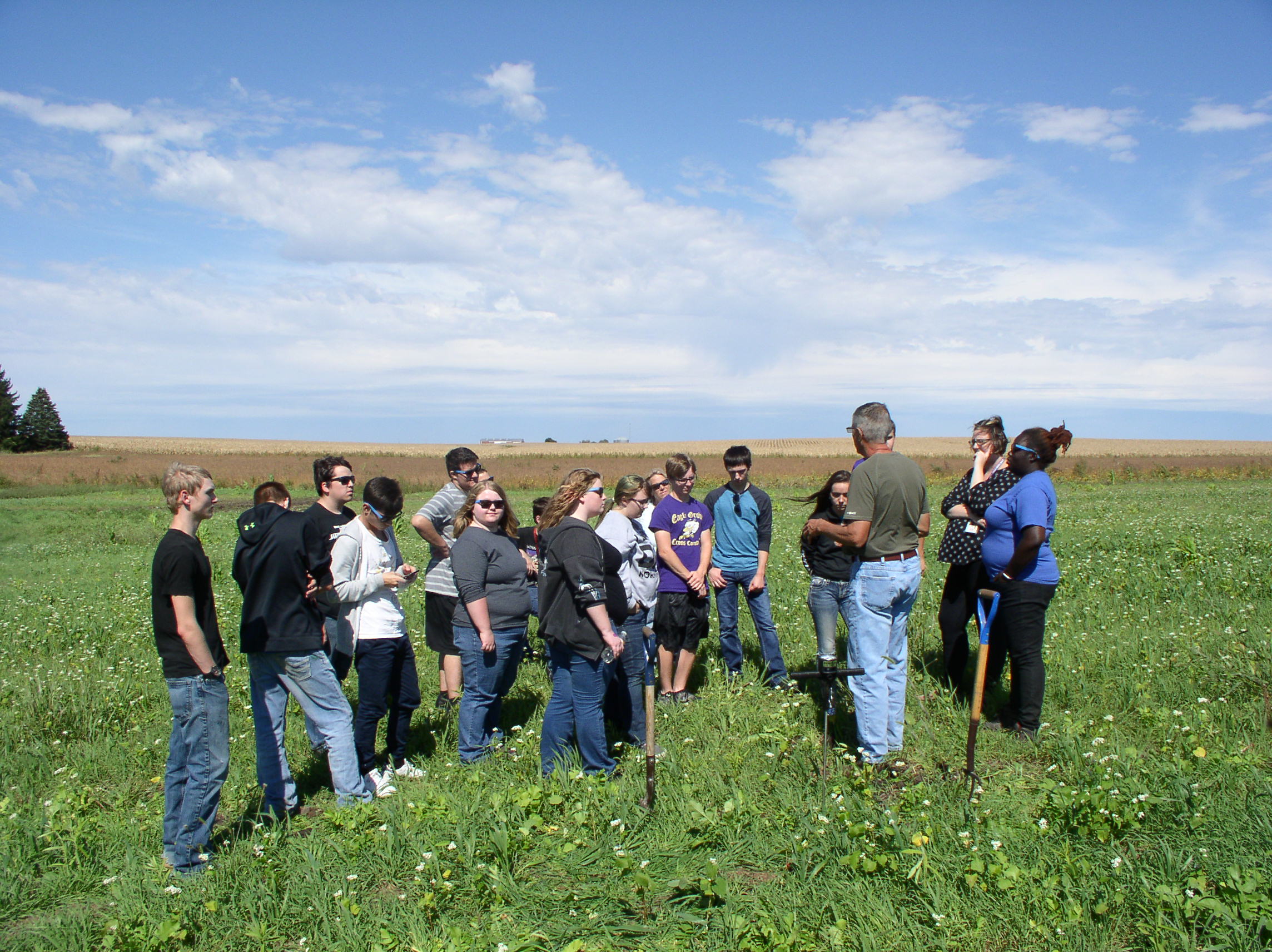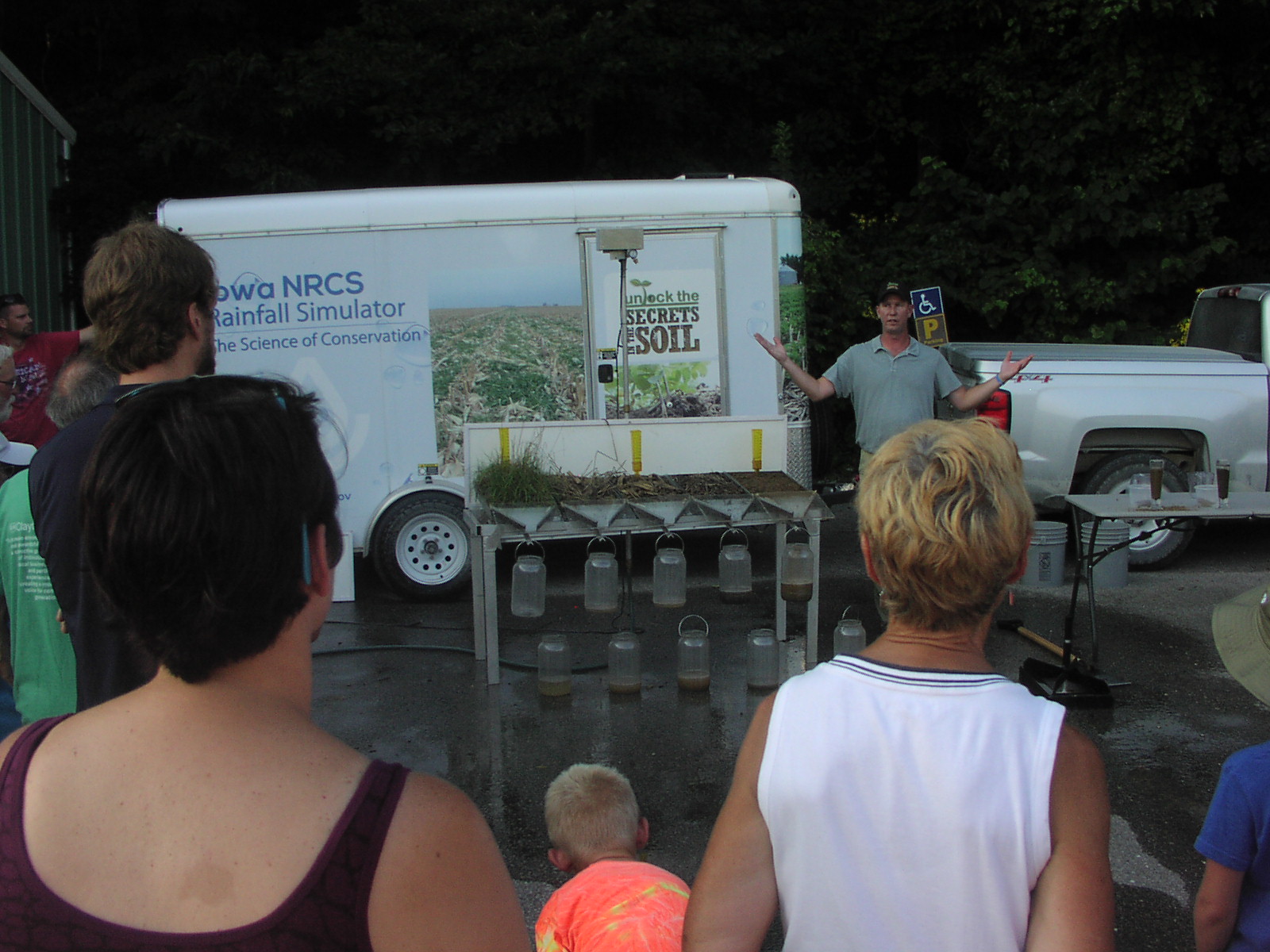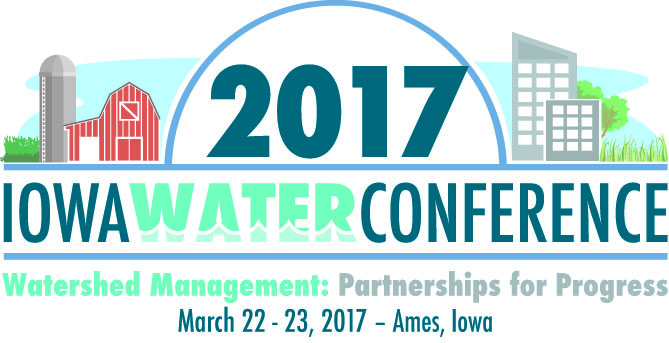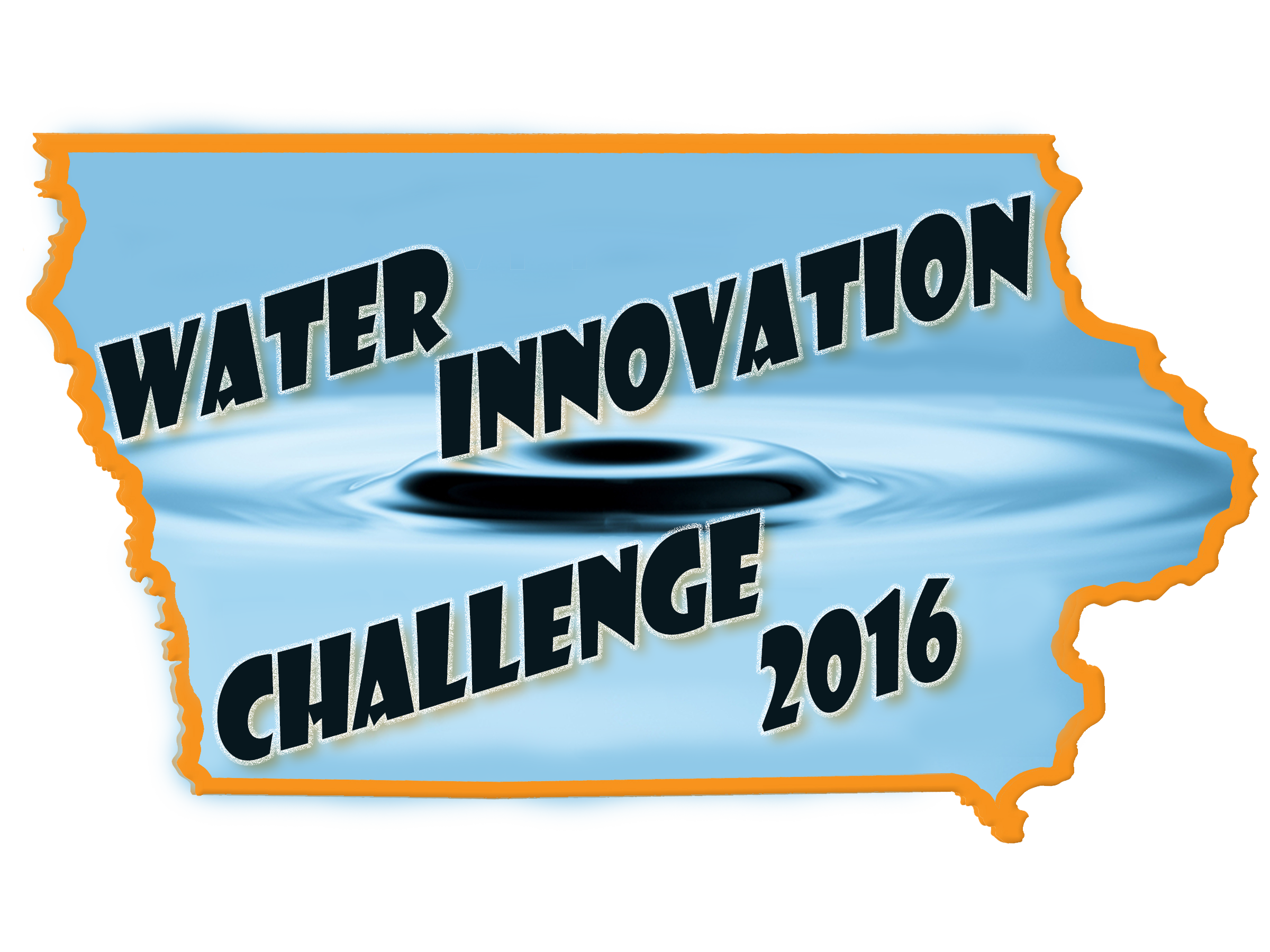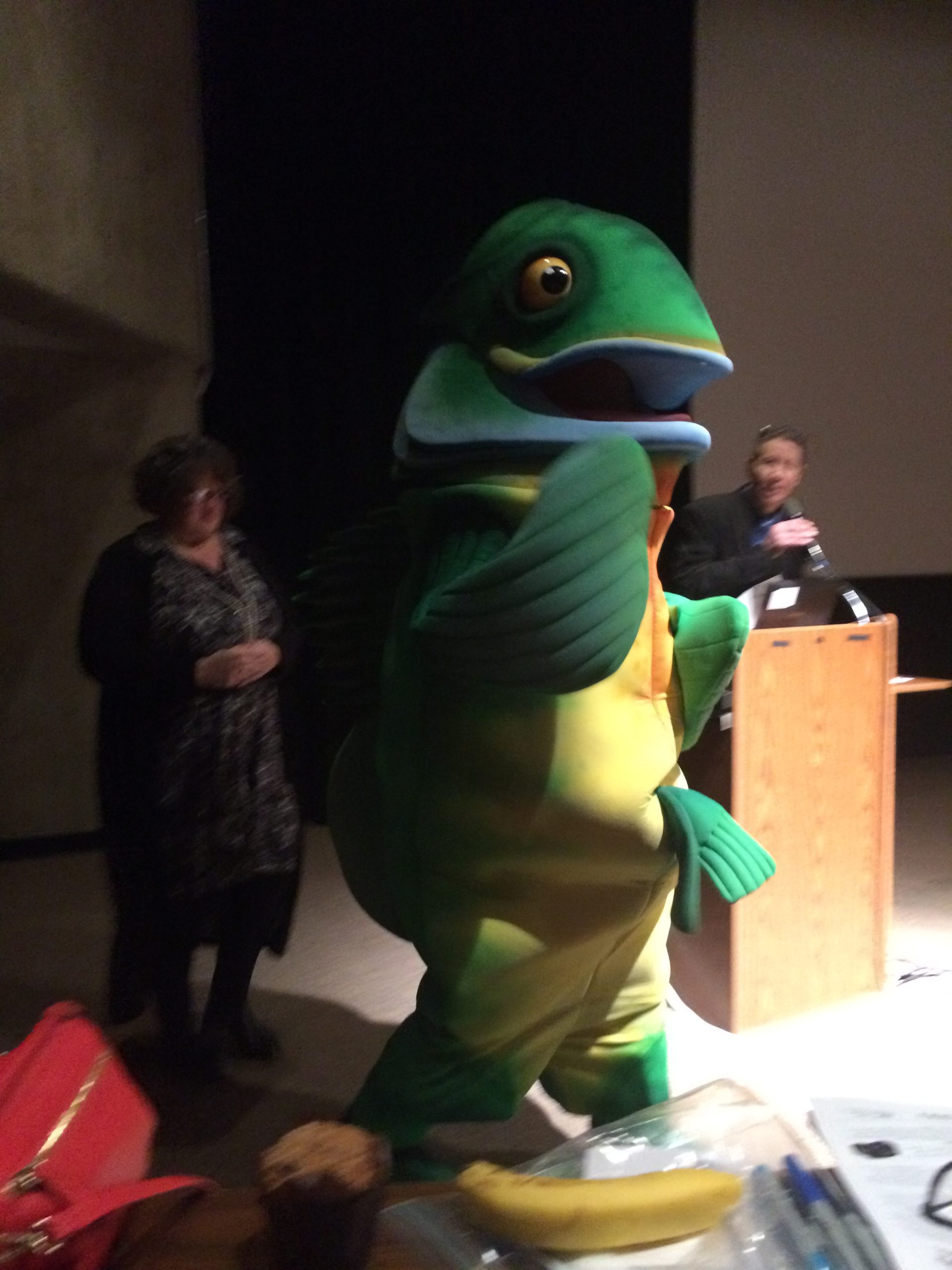The U.S. Geological Survey, in cooperation with the National Institutes for Water Resources, requests proposals for research projects to address improving and enhancing the nation’s water supply and availability, as well as promoting the exploration of new ideas that address or expand our understanding of water problems.
Continue readingEagle Grove Students Learn about Conservation Practices on the Farm
Eagle Grove, IA – On September 20th, the Earth Science class from the Eagle Grove High School took a field trip to a farm operated by Tim Smith. Smith, a White House Champion of Change for Sustainable and Climate-Smart Agriculture, showed how he incorporates cover crops, strip tillage, and a bioreactor into his farm operation. Students also traveled 12 miles north of his farm to tour a wetland CREP site. Tim, along with Bruce Voigts and Tas Stephen from the Natural Resources Conservation Service (NRCS) in the Clarion USDA office, discussed how the benefits these practices add to soil health and water quality.
Continue readingFarmers Connect Conservation to Water Quality at Big Spring
Elkader, IA. – On August 10th, fifty farmers from the Upper Roberts and Silver Creek Watersheds enjoyed an evening of family fun at the Big Spring Trout Hatchery along the Turkey River near Elkader. The Second Annual Landowner Appreciation Day allowed farmers and their families to follow the path of water that drains from their land to where it reemerges at Big Spring.
Continue readingIntroducing a New Member to the Iowa Water Center Team
Hanna Bates joined the Iowa Water Center at the end of August as the Program Assistant. In this position, she will administer our grants program, assist in planning our education and outreach events, and assist in facilitating the relationship between water-related researchers and the public.
Continue readingIWConf17 presentation applications are due (really) soon
If you’ve been putting off submitting an application to present at the 2017 Iowa Water Conference, put it off no longer – applications are due Sunday night (Aug 14) at 11:59 p.m. The IWConf17 planning committee will review in the weeks following as the “first cut” for determining the 2017 conference agenda.
(It’s okay if you wait until Sunday to submit. It’s not procrastination. You’re busy. It’s prioritization.)
Wondering if you should submit an application? Do you answer yes to any of the following questions?
-Do you have a story to tell about watershed successes?
-Are you looking for partners for a current or new project?
-Do you have the latest tool in your water management field with proven results?
-Have you figured out a way to engage new sectors of populations in water-related activities or conversations?
From the call for applications:
From the IWC Director: Water Quality – Why Such a Challenge?
On July 26, IWC Director Rick Cruse presented to about 150 attendees at the Arkansas Water Resources Center’s Annual Conference. The theme of the conference was “Nutrients, Water Quality and Harmful Algal Blooms.” Dr. Cruse spoke during the opening general session in a presentation entitled “Water Quality – Why Such a Challenge?” The following is a summary of what he told our downstream friends in Arkansas.
Why is water quality such a challenge? A few simple concepts help recognize why this challenge exists.
We know that water added to a pail filled water will be lost.
We know that complex systems are more difficult to understand and manage than simple ones.
We also know that activities favoring economics of an individual may not favor natural resources or the general population.
And finally, to be a champion one must be willing to identify a goal and be committed to meet that goal.
Transposing these concepts to agriculture is quite simple. Adding nutrients to a landscape that has had repeated nutrient additions and does not have the capacity to hold additional nutrients will likely lose those nutrients as a full pail loses water added to it. Managing nutrients in agricultural systems is incredibly complex; elements of this complex system range from policy influencing human management choices to highly variable weather systems.
Understanding these elements independently is difficult, understanding how they interact is incredibly challenging. Management practices that favor maximum short term economic returns require short term management choices; managing natural resources such as water requires a long term vision. Short term profit motives seldom support long term water quality goals.
Finally, if we want improved water quality, we must make water quality a committed goal and not just an add-on to a system that we know to be very leaky.
Mixing entrepreneurs with H2O for a solution
Earlier this year, IWC Director Rick Cruse and Associate Director Melissa Miller met with staff from the Agricultural Entrepreneurship Initiative (AEI) at Iowa State University about an exciting new event idea. AEI team members have spent the last several months working tirelessly to organize Water Innovation Challenge 2016, an open community creative event that will join students, industry experts, scientists, entrepreneurs and YOU to collaborate and co-create new ideas that change the way we think about, manage, and use water in our state.
Details:
Waterpalooza 2016
Sept 1 & 2 (must be present both days)
Scheman Building, Iowa State University campus, Ames
$50 registration (FREE for current students)
Over $15,000 awarded in prizes
The event is facilitated by Dr. Jeffrey Stamp, a professional creative and concept developer who was the inventor of the Frito-Lay Baked! Lays® Potato Crisps. Dr. Stamp is a native of Sheldon, Iowa and leads creative innovation sessions worldwide for corporations, universities, and start-ups.
We at IWC are delighted to promote this event that will equip a variety of stakeholder with entrepreneurial skills all while thinking big and sharing ideas that will creatively address water quality issues in Iowa.
For guidelines, event schedule, and registration information, please visit the event’s webpage. Questions can be directed to Amanda Blair at acblair@iastate.edu or 515.294.4945. This event is sponsored by the Iowa Farm Bureau Federation.
Reflections on the 2016 Iowa Water Conference
It’s been a week since the opening of the 2016 Iowa Water Conference, one of the most highly attended events in its ten year history. We’ve been busy tying up loose ends, getting presentations posted on the event page, and even catching a few breaths here and there. A week removed seems like a good time to record some observations about this year’s conference as we look forward to 2017 (yes, already!).
You can’t control the weather. We had the conference three weeks later this year to avoid the inevitable early March “in like a lion” happenings. Mother Nature pretty much laughed in our faces, since the weather at the beginning of March was gorgeous, and the storm Wednesday night prevented several attendees and three speakers from making it to Thursday’s activities. (Absolutely enormous thank you to ISU Brent Pringnitz for setting these speakers up to present remotely in an unbelievably short turnaround period.)
Water is kind of a big deal. We had almost 500 people attend the water conference this year. That’s 100 more than last year. We had more posters, more exhibitors. People care about water so much that they will take two days out of their busy schedules to come learn and talk about it with people they may or may not know. The opening plenary even got media coverage on WHO TV.
The Iowa Water Conference shouldn’t be the only time we collaborate. We’ve received feedback from many people who want to make sure the cross-pollination that the Water Conference fosters stays at the forefront. One way to do that is to plan or attend local conferences/meetings/seminars on more specific interests (like tomorrow’s IGWA meeting in Newton). If you need help planning, let us know – we can help steer you in the right direction. If you’re looking for events, sign up for our newsletter. If you have an event, send it to us and we’ll help promote it.
This is YOUR conference. We made quite a few changes to this year’s conference to reflect the comments left in the evaluations from last year, and from what we can tell, they worked (for the most part). Please continue to send us your ideas throughout the year. We’ll have an open call for presentations during the summer months; you’ll find the announcement on this blog, our newsletter and Facebook and Twitter. We have an amazing core committee of conference planners, but can always use more ideas and voices. If you or your organization might want to be on our list of planning partners, give us a call.
There is a lot more we can say, but we’ll leave it at that for now. What were your takeaways from the 2016 Iowa Water Conference?
Iowa Groundwater Association Conference March 31
The Iowa Water Conference isn’t the only learning opportunity around these here parts – make sure you sign up to attend the Iowa Groundwater Association‘s Spring Conference. Registration is due in advance, so hop on over to their website to register – $75/members, $100/non-members, and $25/students until 3/24.
The details:
Thursday, March 31, 2016
DMACC Conference Center Auditorium – 600 N. 2nd Ave. West, Newton, Iowa
IGWA is honored to present this exciting line-up of speakers for our spring conference! Please join us in learning about the Flint Water Study, the DMWW lawsuit, avian influenza, antibiotic resistant bacteria, arsenic, radionuclides, and source water protection!
CEU’s are available for Groundwater Professionals (2), Certified Well Contractors (6), and Water Treatment Operators (0.5).
Presentations:
- Detection of Avian Influenza A in Groundwater: Results from the 2015 HPAI Outbreak – Laura Hubbard, USGS
- Protecting Source Waters in Agricultural Watersheds – Bill Stowe, Des Moines Water Works
- Flint Water Study – Anurag Mantha, Virginia Tech
- Fate and Transport of Antibiotic Resistant Bacteria and Resistance Genes in Tile Drained Agricultural Fields Receiving Swine Manure Application Over Four Years – Elizabeth Luby, Iowa State University
- Arsenic and Old Wells: Reducing Contamination Risks for Private Well Users – Sophia Walsh, Cerro Gordo County Dept. of Public Health
- Radionuclides in Alluvial and Shallow Bedrock Aquifers – Dustin May, State Hygienic Laboratory/University of Iowa
- Hydrogeologic Reconnaissance and Characterization for a Groundwater Source of Supply: Fort Madison, Iowa Case Study – Greg Brennan, HR Green
The Elixir of Life: An Invitation
Guest blog by Jodi Enos-Berlage, Biology Professor at Luther College in Decorah, Iowa
Water—one of the simplest molecules on earth, is the basis for all life, and this requirement is non-negotiable. The great mystery then, is how we humans have allowed this sacred molecule to become the most polluted substance on earth, and what we should do to solve this problem.
Six years ago, an ISU Extension representative called me to ask if I would be interested in leading a water quality monitoring effort in an impaired waterhshed in Northeast Iowa. I was a scientist and an educator who grew up on a farm. I had read about the many water quality problems in Iowa. In fact, I lived in this impaired watershed, and knew my farm might be contributing to the problem. I said yes.
What began as project to collect water quality data evolved into something much bigger—sharing data and forming relationships with local farmers, using that data to secure funding for water quality improvement practices, developing a three-week, water-focused laboratory in my microbiology course, six years of water quality research involving over 15 undergraduate students, eight presentations and publications, and finally, an amazing collaboration with a dancer, a musician, and a cinematographer at Luther College that resulted in Body of Water. I now invite you to experience this unique work.
Body of Water is an original, unique performance that intermixes dance, music and video components. Art and science are intentionally interwoven to create an end product more powerful than the sum of its parts. The overall goal was to reveal the sacredness of this essential molecule and elixir of life. No one in our group was aware of a precedent for this type of performance, so it was a real experiment. While the videos, many of which I narrate, tell the story of the essentialness of water for life, its geographic connectivity, its chemistry and biology, and the major pollutants that impact both surface and groundwater, the dancers and musicians produce complementary and novel movements that provide the basis for emotional and human connection. We spent hours interviewing various stakeholders about water–this informed the performance, and some of their visual and audio clips are included. Local and state water issues, both agricultural and urban, are highlighted. The reverence that Native American populations have consistently and powerfully exhibited for this precious resource also inspired the work.
Notably, the purpose of the performance was not to take any particular position, e.g., a regulatory or voluntary approach, mainly because no matter where someone might stand on this spectrum, it has a divisive effect. Our goal was to create a performance that would unite, through an informational, and perhaps more importantly, emotional and spiritual experience. Based on the audience responses at the multiple sold out shows at Luther College, and at the subsequent Grinnell Summer Arts Festival, we are humbled by the outcome. The audience we attracted at Luther was one of the most diverse ever in terms of a performance, and included members of agricultural, urban, and conservation groups, scientists and artists, educators and students, and community members and leaders. It is our sincere hope that the performance at ISU will attract a similarly diverse audience.
We are incredibly excited to be partnering with a group of Ames High School students—the Bluestem Institute—for the pre-performance, as the creative work of our young people provides the greatest inspiration. These students will be presenting the beautiful products of their year-long research and service learning project focused on water. We have much to learn from them.
Ultimately, we acknowledge Body of Water as a prayer to return to a right relationship with the earth—recognizing that our own success is not dependent our abilities to control or dominate, but on our abilities to harmonize and see ourselves as a part. In this spirit, we are freely contributing our energies to spread this message. There is no charge for admission and we hope you will be inspired to attend.
Body of Water will be presented as a part of Art of Water 2016 on March 23 at CY Stephens Auditorium in Ames, Iowa
